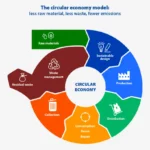Jindal Stainless Commences First-Ever Use Of Green Hydrogen For Stainless Steel Sector In India In Partnership With Hygenco

Union Minister Scindia Virtually Inaugurates Plant Commissioning
Jindal Stainless (JSL) has initiated the groundbreaking use of green hydrogen at its stainless steel plant in Hisar, Haryana, aligning with its commitment to sustainability and India’s Net Zero carbon emissions goals. The inauguration, led virtually by the Hon’ble Union Minister of Steel and Civil Aviation, Jyotiraditya Scindia, from New Delhi, saw the presence of key figures including the Secretary of the Ministry of Steel, Shri Nagendra Nath Sinha, Managing Director of Jindal Stainless, Mr Abhyuday Jindal, and CEO of Hygenco Green Energies, Mr Amit Bansal.
Commending the initiative, Union Minister Jyotiraditya Scindia stated, “I commend Jindal Stainless Ltd. and Hygenco for launching India’s first green hydrogen plant in the stainless steel sector. This pioneering initiative will enhance the sector’s sustainability in line with Prime Minister Narendra Modi’s vision for Net Zero emissions by 2070, inspiring others to adopt clean technologies for a greener economy.”
Secretary of the Ministry of Steel, Nagendra Nath Sinha, remarked, “Jindal Stainless’ commitment to green hydrogen reflects a forward-thinking approach, benefiting both the environment and energy security by reducing carbon emissions and diversifying energy sources.”
Managing Director Abhyuday Jindal expressed optimism, saying, “Our sustainability commitment extends beyond this pilot project. We aim to scale up this initiative across our stainless steel manufacturing processes, understanding that sustainability requires continuous innovation.”
CEO of Hygenco, Amit Bansal, emphasized the significance of the project in advancing the global green hydrogen revolution and enabling large-scale adoption across sectors.
The state-of-the-art plant, established in collaboration with Hygenco Green Energies, features a fully automated alkaline bipolar electrolyser with a capacity of 350 Nm3/hr, ensuring a consistent supply of green hydrogen using dedicated solar energy. The facility aims to reduce approximately 54,000 tonnes of CO2 emissions over 20 years and operates under a long-term off-take agreement.
With comprehensive monitoring systems, real-time decision-making capabilities, and technology enhancing hydrogen yield, the facility sets a benchmark for efficient green hydrogen production.
India’s National Green Hydrogen Mission aims to produce five million tonnes of green hydrogen by 2030. Jindal Stainless’ efforts in decarbonization, showcased at the UN COP28 summit, underscore its commitment to achieving significant reductions in carbon emissions and reaching Net Zero by 2050, well ahead of the set targets.





























































































































































































































































































































































































































































































































































































































































































































































































































































































































































































































































































































































































